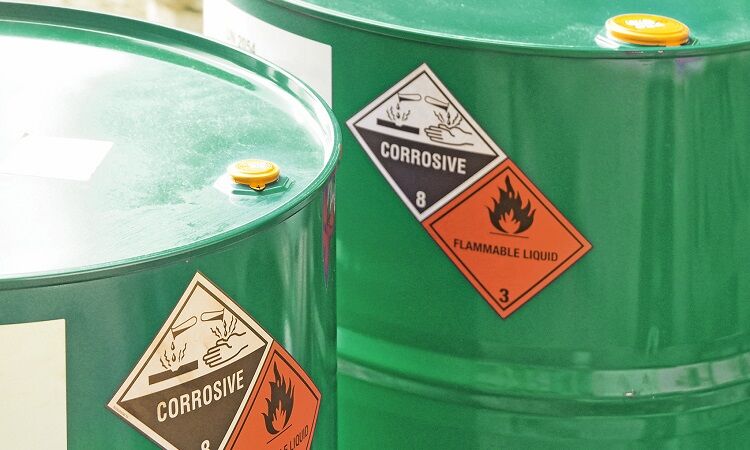Expert Liquid Waste Removal Melbourne: Maintaining Your Atmosphere Clean
Expert Liquid Waste Removal Melbourne: Maintaining Your Atmosphere Clean
Blog Article
Understanding the Comprehensive Process of Liquid Waste Disposal: Best Practices and Environmental Influence Factors To Consider
The administration of liquid waste disposal is a diverse issue that needs a comprehensive understanding of numerous best techniques and their associated ecological impacts. From the kinds of fluid waste produced to the approaches employed for collection, therapy, and last disposal, each step plays a critical function in guarding communities and public health and wellness.
Kinds Of Liquid Waste
Comprehending the numerous types of liquid waste is crucial for effective administration and disposal techniques. Liquid waste can be extensively classified into a number of kinds, each calling for unique handling and treatment techniques.
Industrial fluid waste frequently consists of unsafe materials, including heavy steels, solvents, and chemicals, generated throughout producing procedures. These wastes demand stringent regulative conformity to protect human health and wellness and the atmosphere. Domestic fluid waste mostly refers to wastewater generated from homes, consisting of sewage and greywater, which, although much less hazardous, can still position considerable threats if improperly handled.
Agricultural liquid waste, including runoff from farms, typically consists of plant foods and chemicals that can cause ecological deterioration otherwise treated effectively. Clinical liquid waste, produced from health care facilities, includes contaminated liquids such as physical fluids and chemicals, requiring specialized disposal methods to stop infection and environmental contamination.
Last but not least, oil and oil waste, commonly generated by dining establishments and vehicle markets, can cause severe clogs in sewage system systems otherwise managed properly. Understanding these groups promotes targeted methods for treatment, compliance with policies, and efficient disposal methods, ultimately advertising environmental sustainability and public health safety and security.

Collection Approaches
Efficient collection methods are crucial for the correct management of fluid waste, making sure that it is gathered securely and efficiently prior to treatment or disposal. Different techniques are used depending on the kind of liquid waste created, the volume, and the details qualities of the waste.
One usual technique is the usage of devoted collection containers or sumps, which are developed to record liquid waste at the resource. These systems frequently include pumps that help with the transfer of waste to bigger storage space containers or therapy facilities. Furthermore, mobile collection units furnished with vacuum cleaner technology are utilized in scenarios where waste is generated intermittently or in hard-to-reach places.
For commercial settings, closed-loop systems can efficiently lessen leaks and spills, allowing for the healing and reuse of fluid waste. It is additionally important to educate employees on proper collection protocols to reduce dangers linked with hazardous compounds.
Furthermore, carrying out regular upkeep schedules for collection devices ensures ideal performance and security. The assimilation of innovative surveillance systems can enhance collection efficiency by offering real-time data on waste levels and prospective risks. Generally, reliable collection methods are foundational to sustainable liquid waste administration methods.
Treatment Processes
Treatment processes play a vital role in the management of fluid waste, changing possibly unsafe products into reusable resources or secure effluents - liquid waste disposal. These procedures can be generally classified right into physical, chemical, and biological techniques, each tailored to address specific impurities existing in the waste stream
Physical treatment methods, such as sedimentation and filtration, job by eliminating suspended solids and particulate issue. These methods are typically the very first step in the therapy chain, successfully decreasing the load on succeeding processes. Chemical treatments involve using reagents to counteract dangerous compounds, precipitate hefty steels, or oxidize natural contaminants, consequently boosting the safety of the effluent.
Organic treatment processes, consisting of triggered sludge systems and anaerobic food digestion, take advantage of on the all-natural abilities of microbes to deteriorate natural issue. These techniques are specifically efficient for wastewater having naturally degradable toxins. Advanced treatment innovations, such as membrane layer purification and advanced oxidation processes, are significantly employed to achieve higher degrees of filtration.
Incorporating a combination of these treatment techniques not just ensures compliance with regulative standards but likewise advertises ecological sustainability by recovering valuable resources from fluid waste.
Disposal Options
Just how can companies ensure the accountable and secure disposal of fluid waste? Reliable disposal options are essential for securing public wellness and the setting. The key approaches consist of land therapy, incineration, and disposal adhered to by discharge right into metropolitan wastewater systems.
Land disposal involves the careful containment of liquid waste in designated landfills, ensuring that it does not leach right into bordering dirt or water. Incineration, on the various other hand, subjects liquid waste to heats, converting it into ash and gases, which call for correct purification to decrease exhausts. This approach is appropriate for contaminateds materials that can not be treated through traditional means.
In cases where fluid waste can be dealt with, organizations may go with organic or chemical treatment procedures to counteract unsafe parts before discharging the dealt with effluent right into community systems. This route typically straightens with governing needs, making sure that the effluent satisfies safety and security requirements.
Ultimately, companies need to carry out extensive assessments of each disposal alternative to identify its viability, taking into consideration elements such as waste make-up, regulative compliance, and possible risks to wellness and the environment. By picking suitable disposal approaches, services can add to an accountable waste management approach.
Environmental Effect
The environmental effect of fluid discover here waste disposal is a crucial consideration for companies looking for to decrease their eco-friendly impact. Additionally, the discharge of neglected or inadequately treated waste right into surface area waters can result in eutrophication, leading to oxygen deficiency and the succeeding fatality of fish and various other microorganisms.

To mitigate these impacts, organizations need to adopt ideal techniques such as carrying out strenuous waste therapy processes, promoting recycling and reuse, and sticking to governing requirements. By taking a positive method to liquid waste monitoring, entities can significantly lower their ecological footprint while sustaining lasting development objectives. Inevitably, an extensive understanding of the environmental influences connected with liquid waste Source disposal is crucial for notified decision-making and responsible stewardship of all-natural sources.
Conclusion
Efficient monitoring of liquid waste is important for protecting environmental honesty and public health. Ultimately, a detailed understanding of fluid waste disposal not just alleviates environmental impacts yet likewise cultivates a commitment to accountable source management and ecological stewardship.
The monitoring of fluid waste disposal is a diverse concern that requires a detailed understanding of various ideal methods and their associated environmental impacts. From the kinds of liquid waste produced to the approaches utilized for collection, therapy, and last investigate this site disposal, each step plays a critical role in guarding ecosystems and public health.The ecological effect of liquid waste disposal is a critical consideration for organizations looking for to decrease their environmental impact. Inevitably, a comprehensive understanding of the ecological effects connected with fluid waste disposal is necessary for notified decision-making and responsible stewardship of all-natural sources.
Eventually, a detailed understanding of fluid waste disposal not just mitigates environmental effects but additionally promotes a dedication to responsible source monitoring and ecological stewardship.
Report this page